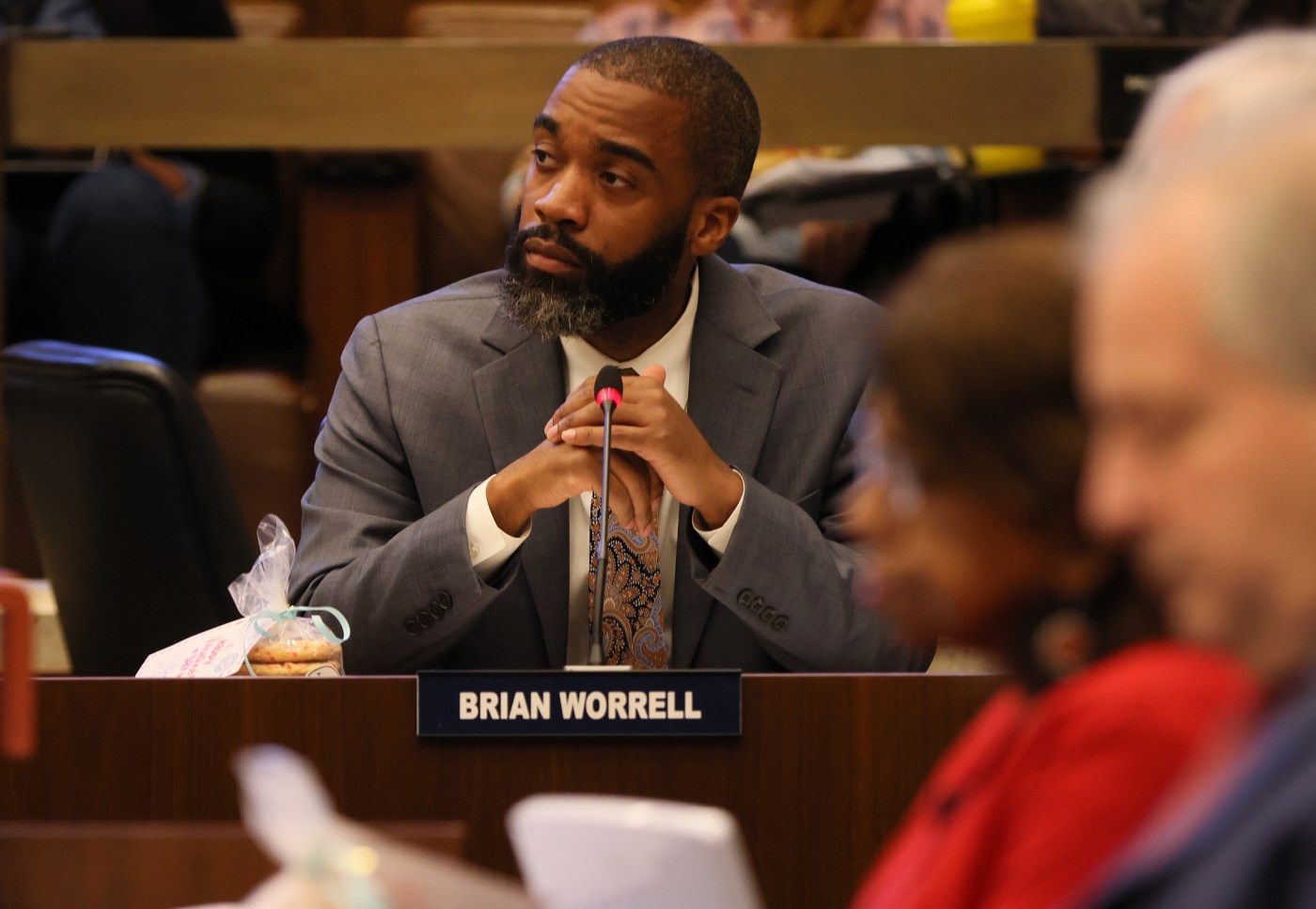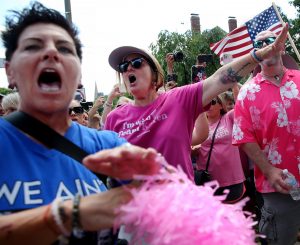
Boston City Council lacks consensus for straight budget override of mayor’s veto setting up a complicated vote
The Boston City Council appears to be headed toward a complicated final budget vote Wednesday after failing to achieve the required two-thirds consensus for a straight override of a mayoral veto that fully restored the body’s public safety cuts.
Council Vice President Brian Worrell, who is overseeing this year’s budget review process as chair of the Ways and Means committee, closed a six-hour working session Tuesday by saying that he planned to put a “few different packages together that make sure we show up in a real way” for residents.
“I’m looking forward to the vote tomorrow,” Worrell said at the meeting’s end.
A spokesperson for Worrell told the Herald that the Council was weighing multiple override votes on roughly $10 million of the $15 million in investments included in the body’s amended budget that was approved, via a 10-3 vote, on June 5, the majority of which was vetoed by Mayor Michelle Wu on June 10.
The day’s working session revealed that while 10 councilors voted in favor of the amended budget, several indicated that they may be voting differently following the mayor’s veto, meaning that the body was short of the two-thirds majority, or nine votes, needed for a straight override, to revert back to the Council’s budget.
Councilors took part in a straw vote at the start of the session to get a sense of how many votes there would be for the amended budget approved on June 5. Only seven councilors raised their hands, two votes fewer than needed for an override, according to a source familiar with details of the discussion.
Former Wu employees Enrique Pepén and Henry Santana, who voted in favor of the amended budget, were present and didn’t raise their hands, with further discussion implying that their votes had been flipped by the mayor, a source said — citing an exchange where both were pushing back against Councilors Julia Mejia and Tania Fernandes Anderson, who were asking why they changed their minds.
Sharon Durkan, a third councilor considered, along with Pepén and Santana, to be among the mayor’s closest allies on the body, was not present for the working session, and therefore did not take part in the informal vote.
Wu, who needed to flip at least two of the councilors to sustain her veto and ensure that the three who opposed the Council’s budget kept their ‘no’ vote, told the Herald Monday that negotiations were still underway.
“We will see on Wednesday but we’re making our best case for the Council,” Wu said.
Councilors Ed Flynn and Erin Murphy, who are typically seen as antagonists to the mayor but voted against the body’s amended budget and expressed support for Wu’s veto, implied that they might be willing to vote for an override if all the public safety cuts were rescinded in the final package put forward on Wednesday, a source said.
Flynn, who has been advocating for funding for the Boston Police Crime Lab and saw the $1 million Council investment for the lab vetoed, told the Herald that his decision would hinge on what the chair, Worrell, proposes as part of the packages he presents for the final budget votes.
“I would consider it,” Flynn said of an override vote. “Until I see the report, it’s difficult to say how I’m going to vote because it is uncertain on exactly what’s on the table.”
The Council’s amended budget would have cut roughly $3 million from the mayor’s recommended spending for the police department, funds that would have been transferred to other city departments for priorities targeted by the body.
An additional $1 million would have been moved within the police department, to provide more funding for the understaffed Boston Police Crime Lab to help with its sexual assault testing kit backlog.
The amendments would have also reduced the mayor’s proposed budgets for the public works, fire and transportation departments and the Boston Center for Youth and Families by $800,000, $734,999, $600,000 and $570,000, respectively.
The public safety cuts were strongly criticized by the police and fire unions, although several councilors who voted for them argued that there were no personnel reductions and a large chunk of the cut was aimed at delaying a police promotional exam they said was leading to discriminatory hiring practices.
Related Articles
Boston has 4th worst traffic in US, eighth in the world, report says
State senate releases $5.2B housing bill, rejects real estate transfer tax
Boston’s downtown office to residential conversion program gets $15M state boost
Seaport convention center could carry Thomas Menino’s name under House proposal
Boston Mayor Wu: ‘No plans’ to return migrant, homeless shelter to addiction outreach amid Mass and Cass spike
“I know the council has distinguished between personnel and equipment and where cuts are coming from and we appreciate that there have not been any suggested cuts for public safety personnel,” Wu said on Monday. “But even the non-personnel lines are very important to the plans that these departments have laid out to improve technology to update their equipment.”
The mayor also pointed to contractually-required funds that were budgeted to cover recently approved collective bargaining agreements for several police unions, saying, “We need those funds to be there.”
She insisted there are “billions of dollars” in the budget that already reflect the Council’s shared priorities with her administration on city spending, and that the “amendment process is a small step at the end of that.”
Her veto kept $1.1 million in Council reductions and roughly $2 million in spending for the body’s priorities.
The Council’s amended budget had targeted new investments in housing, career and college readiness, quality of life and community safety.
While there wasn’t consensus for a straight override, Councilor Julia Mejia said she wanted to go on record as saying that she wants the body to “fight for the override for the full $15 million” in amendments put forward in its budget.


